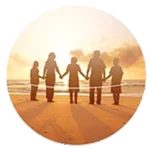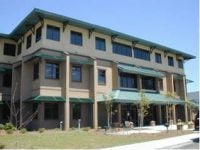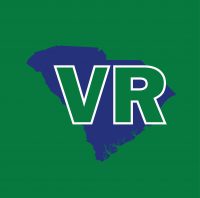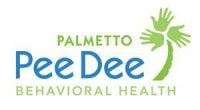Tri County Community Mental Health Center
Drug Rehab Center in Bennettsville, South Carolina
The Tri County Community Mental Health Center in Bennettsville, South Carolina, offers a comprehensive outpatient facility for individuals undergoing treatment for addiction and substance abuse, including personalized plans, evidence-based practices, Medication Assisted Treatment, and community outreach.
About Tri County Community Mental Health Center in South Carolina
Tri County Community Mental Health Center in Bennettsville, South Carolina, is a comprehensive outpatient facility that offers an integrated system of programs committed to helping individuals lead healthy, productive lives. Along with adult and child psychiatry and counseling, their services also include treatment for substance abuse and addiction. Their staff of licensed psychiatrists, psychologists, certified addiction counselors, and social workers have the training and experience to provide a broad range of services in multiple settings.
At Tri County Community Mental Health Center, individuals undergoing treatment for addiction and substance abuse can receive a comprehensive, evidence-based approach to treatment that combines medical, psychological, and behavioral therapy. They work closely with individuals to develop personalized plans that encompass evidence-based practices like the 12-Step program and Cognitive Behavioral Therapy. They also provide behavioral health interventions to address mental health concerns that may be contributing to the addiction.
Tri County Community Mental Health Center is accredited by the Commission on Accreditation of Rehabilitation Facilities and is a licensed provider of Substance Abuse Services by the South Carolina Department of Alcohol and Other Drug Abuse Services. They also offer a Medication Assisted Treatment Program for alcohol and opioid use disorders. They also work extensively with the local community to provide educational materials and resources to help prevent and reduce substance abuse, as well as to raise awareness of the dangers of addiction.
Genders
Ages
Modality
Additional
Conditions and Issues Treated
Levels of Care Offered
This center offers a variety of custom treatment tailored to individual recovery. Currently available are Outpatient, with additional therapies available as listed below.
Outpatient treatment consists of counseling and therapy sessions. The outpatient treatment process begins with the addict’s initial detox period, lasting about ten days. Outpatient treatment is used for those who are at moderate risk for “slipping back” into the addiction. It is also used for those who are not currently experiencing any side effects from withdrawal, can handle social pressure, have a stable living environment, and have a good support system.
Therapies & Programs
Individual Therapy is a crucial component of addiction recovery. Therapists work with patients to identify the root of their addiction and figure out how to better handle the issues that led to them using drugs. Individual Therapy is one on one sessions where people meet with their therapist. Individual therapy provides a safe space for people to open up and discuss personal and sensitive topics which they may not feel comfortable discussing in a group setting.
In this type of therapy, therapists can develop specific solutions for each patient, which helps speed up their recovery process. In addiction recovery, therapy is a crucial part. It allows patients to go deep into their core issues and discover how those problems can be better handled now. Therapy can be performed in individual sessions as well as group settings. In individual therapy for addiction, the patient meets with the therapist one-on-one to focus on the underlying issues of addiction and come up with solutions to prevent future abuse.
Addiction can take a heavy toll on relationships, damage the trust and intimacy that was once there. Couples therapy at Tri County Community Mental Health Center helps to rebuild the trust and intimacy that has been damaged. An intimate relationship with a drug addict is not healthy for children or anyone in the family. Therapist help to rebalance family roles and create a healthier environment after rehab in Bennettsville, SC.
Family therapy is a crucial part of drug treatment and getting sober. It is one of the most effective ways to help addicts stay on the path to long-term sobriety. One of the most important parts of family therapy is the relapse prevention plan. During treatment, therapists and doctors will often sit down with the addict and their family to develop a plan if the addict ever feels like they want to use again. This plan should involve steps the addict and family can take together to prevent them from relapsing in the future.
An addict’s family can play a vital part in helping them to avoid relapse because they can spot the warning signs and help them get back on track before it becomes too much of a problem. Family therapy is one of the most effective ways to help addicts stay on the path to long-term sobriety.
Group Therapy is employed by drug treatment centers like Tri County Community Mental Health Center to provide the recovering addict with a platform to talk about their feelings and experiences. It also provides for an opportunity to learn from other addicts who have successfully overcome their addiction. It is recommended that all group members be recovering addicts for this type of therapy to work.
This type of therapy involves the use of a variety of therapeutic techniques to help addicts recover from past traumas that might have triggered their substance abuse. During these sessions, therapists will work with the addict to address painful memories and learn how to cope effectively with stressors as they arise.
During these types of sessions, therapists will typically focus on three main goals:
- Identifying and expressing painful emotions associated with past traumas.
- Reducing the effects of stress on an addict’s life by developing more effective coping mechanisms.
- Developing healthy ways of thinking about stressful situations that can help addicts avoid substance abuse issues in the future.
This type of therapy is typically used in conjunction with other types of addiction treatment services. By identifying and dealing with the root cause of addiction, most addicts can overcome their cravings and prevent relapse once they leave rehab.
Many different types of addiction treatment services exist to help addicts safely get sober, but it’s important for recovering individuals to find a therapist or support group that will help them address the root cause of their addiction.
Cognitive Behavioral Therapy (CBT) is an approach and method in psychotherapy. Tri County Community Mental Health Center asks people to investigate how their thoughts, including habitual, harmful, and inaccurate ways of thinking, affect behaviors. CBT is based on the idea that rigid, inflexible ways of thinking cause people to have a limited ability to cope with stress, which leads to emotional distress.
Likewise, CBT helps people identify maladaptive behaviors and replace them with more positive behaviors. It makes you look at the way you perceive something and ask: Is this a realistic belief? CBT asks people to look at the role of behaviors and emotional responses and how they may be distressing in one’s life. The goal of CBT is to change the way people think and behave to achieve a more balanced, healthier lifestyle.
Moreover, CBT has been shown to reduce some types of anxiety disorders, depression, and symptoms related to thoughts or actions that are considered harmful.
Good nutrition can be difficult for people recovering from addiction because they may not feel like eating while they are experiencing the physical and emotional side effects of detoxing.
Nutrition therapy can help addicts in South Carolina in the following ways:
- Helps individuals to understand which foods promote good health and support recovery that will assist them during detox
- Provides guidance and education about how to maintain a nutritious diet so they can stay healthy during recovery
- Improves their overall health and well-being, which can reduce the severity of substance withdrawal symptoms.
Nicotine replacement therapy treats nicotine addiction using external sources of nicotine, such as patches or gum to substitute for nicotine. This allows people trying to quit smoking to get their desired dose of nicotine without actually having to smoke cigarettes. There are several different types of NRT devices on the market now, and it is important to talk to your doctor about the best kind for you.
Patient Experience
Experiential Therapy at Tri County Community Mental Health Center
Experiential therapy at Tri County Community Mental Health Center includes helping people work through emotional disorders by participating in events in real-time. It moves away from conventional talk therapy to discuss their concerns and emotions by making patients play roles or use props. It allows people to handle trauma and feelings healthily, reducing the need to resort to alcohol and substances in Bennettsville, SC.
Payment Options Accepted
For specific insurance or payment methods please contact us.
Is your insurance accepted?
Ask an expert, call (888) 674-0062
Additional Details
Specifics, location, and helpful extra information.
Bennettsville, South Carolina 29512 Phone Number(843) 454-0841 Meta DetailsUpdated November 25, 2023
Staff Verified
Tri County Community Mental Health Center Patient Reviews
There are no reviews yet. Be the first one to write one.
Bennettsville, South Carolina Addiction Information
More than 610,000 of South Carolina residents, or a staggering 11.9% of the state population, uses illicit drugs and another 230,000 residents abuse alcohol every year. A majority of the illegal drugs used and abused are opioids. Marijuana use and underage drinking occur amongst the young residents of this state–though at a lower rate compared to the national average.
The drug addiction problem in Bennettsville, South Carolina is relatively bad. In 2012, there were 940 reported heroin incidents in the state, and in 2013 that number increased to 1,038. There are many different types of drug treatment facilities, so it's important to find one that fits your needs.
Treatment in Nearby Cities
- Winnsboro, SC (81.0 mi.)
- Hemingway, SC (62.6 mi.)
- Aiken, SC (137.5 mi.)
- Easley, SC (165.5 mi.)
- Chester, SC (86.3 mi.)
Centers near Tri County Community Mental Health Center
The facility name, logo and brand are the property and registered trademarks of Tri County Community Mental Health Center, and are being used for identification and informational purposes only. Use of these names, logos and brands shall not imply endorsement. RehabNow.org is not affiliated with or sponsored by Tri County Community Mental Health Center.









